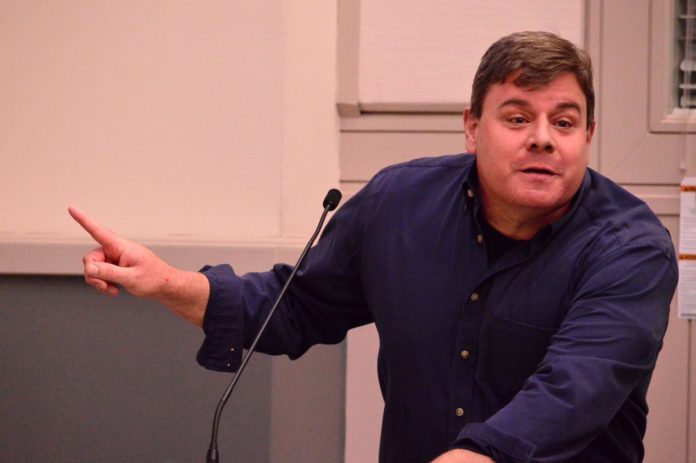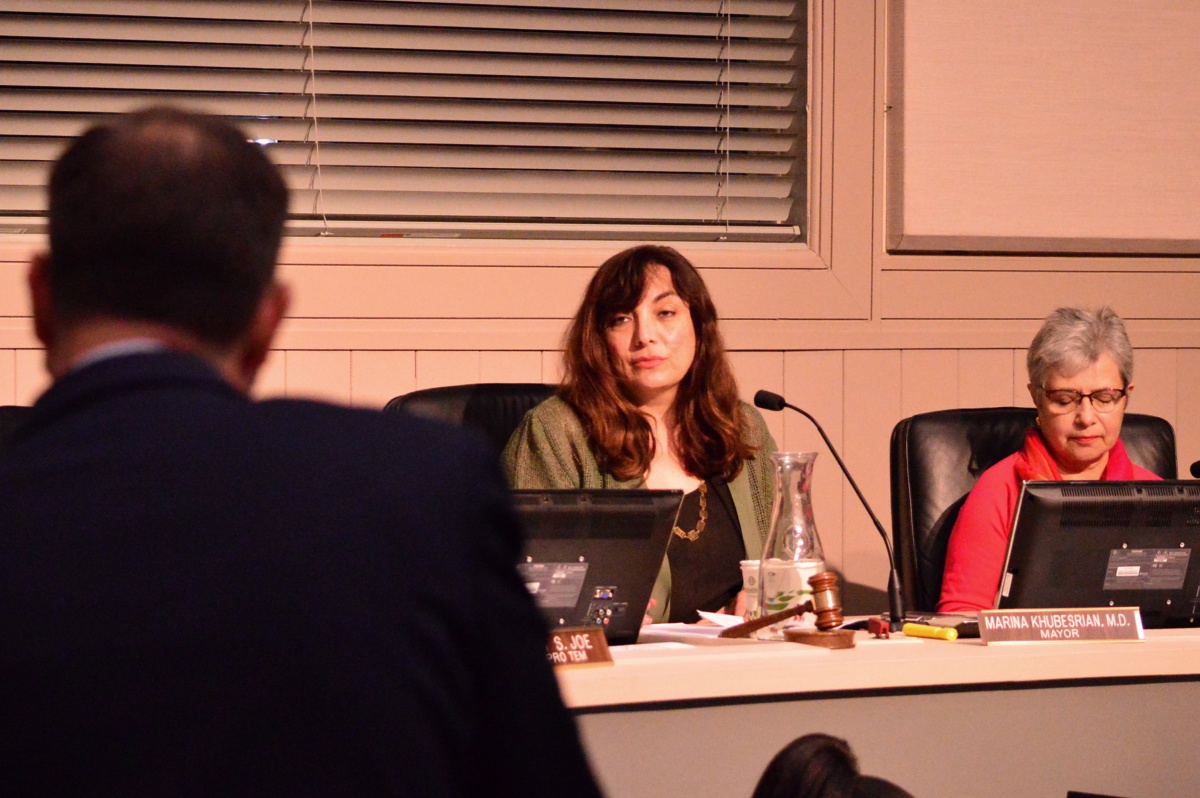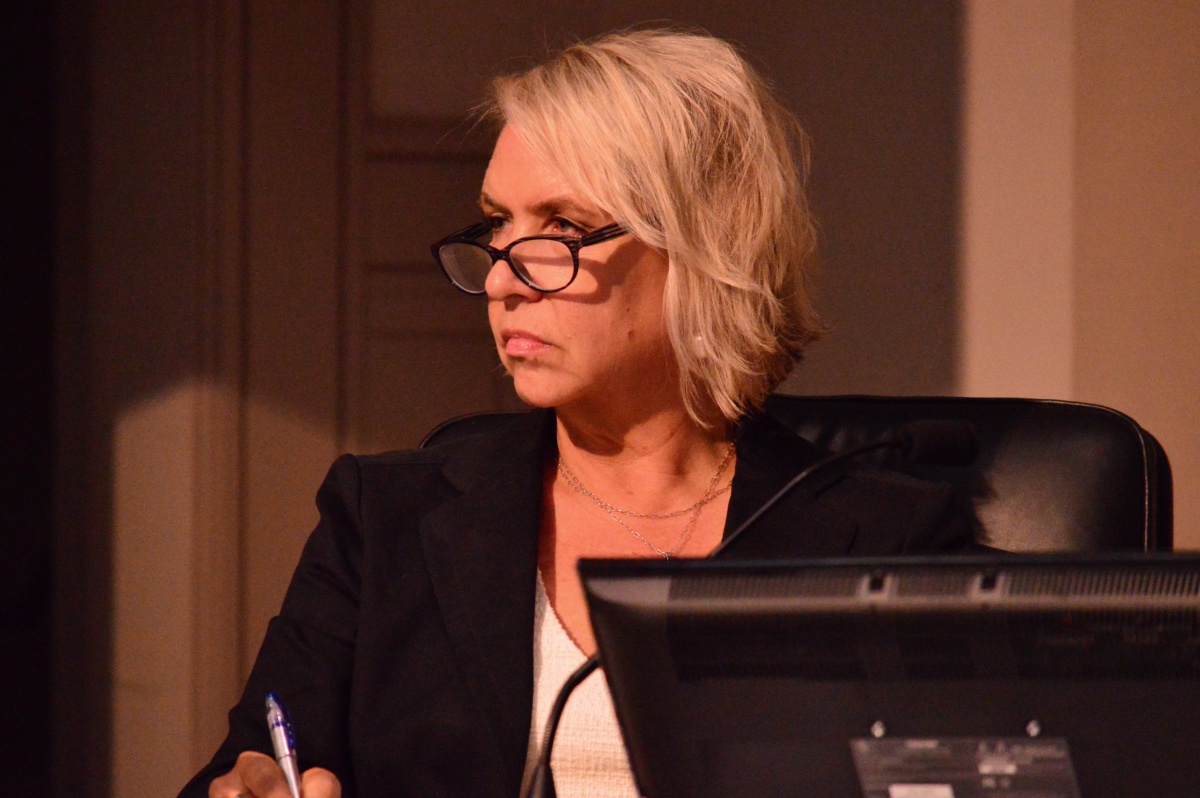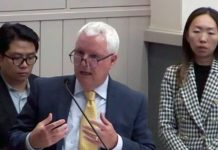
Update Sept. 18 to include city’s comments
——————————————————————————————————
Moved by a sense of “growing community concern about the quality and course of South Pasadena city government,” a dozen residents, activists and business owners have chartered a new, informal organization.
Members of Crossroads South Pasadena have “many doubts” about city policy, its organizers said in a letter sent Monday to city council members, but its top three issues are: the openness of city leaders to questions and criticism; city financial planning and spending choices; and the retention of high quality city staff.
Spawned by a Sept. 10 Nextdoor post penned by South Pasadena resident Chris Bray, CSP’s first meeting at Canoe House last Wednesday night drew 15 attendees. In a public note the next day, Bray said the “intention is to forcefully pursue a course correction for our city government—and then, with success, move on. [A] concentrated effort through the 2020 city council election will re-orient the city to a set of lost values.”
Three of South Pasadena’s five city council seats will be on the ballot in November 2020—those now held by Robert S. Joe, Marina Khubesrian M.D. and Richard Schneider M.D. But Bray said CSP would be an “independent, non-partisan group” that would not endorse political candidates.

Bray, who holds a PhD in history from UCLA, is an author and former Pasadena Weekly reporter and Washington Post book reviewer who has written on military themes. He lived in Pasadena and more recently in Los Angeles until moving with his family to South Pasadena a year ago.
Other signatories to the letter are: Bianca Richards, Dollie Chapman, Russell Shane, Delaine Shane, Melissa Flores, Micah Zimmermaker, Richard Marshall, Janet O. Marshall, Anne Bagasao, Brian Bright and Jenny Bright.
While detailing all its concerns, the letter focused on turnover among the city’s management and employees as most symptomatic and symbolic of a sense that the city is “adrift.”
“Personnel is policy, and the available evidence suggests that the City of South Pasadena has adopted a policy of uncertainty and ineffectiveness. Four city departments are being run by interim directors who in one case replaced yet another interim director: planning and building, finance, community services, library. The police chief and public works director are new.”
The group says it has heard that fifty employees have left the city over the past year though, “owing to the city’s limited public discussion of the topic,” it has not confirmed that. If so, however, the figure “would represent a loss in the neighborhood of 25 percent of city staff.”
South Pasadena city spokesman John Pope said the figures alleged in the letter are simply “not true.” He said of the city’s current complement of 147 full-time employees and about 80 part-time, only 16 full-timers have left in the last year, including four who did not hold permanent positions. He did not give a figure for part-time attrition, but said the city’s overall employee turnover rate comes to 11 percent. That’s on par with the 10 percent rate he said is considered appropriate for a healthy organization—low enough to retain institutional knowledge, but high enough to ensure an adequate flow of “fresh blood.”
The letter also points to comments made during a watershed meeting of the city’s Planning Commission Aug. 13. There, City Council liaison Richard Schneider alluded ominously to a “serious problem” about the “workings of the planning department” that he said was so awkward to speak of publicly that he invited commissioners to express their advice to the council privately.

Vice-Commissioner Janet Braun complained that despite being a planning commissioner, she had “no idea what’s going on” in the department but said she’d heard rumors “we don’t have any staff” and are therefore “hurting our city and hurting our residents.”
Commissioner Richard Tom said he wanted to echo Braun’s concerns while Chairwoman Kelly Koldus allowed that she is worried about the department’s “very analog” building permit system that generates considerable inefficiencies due to its ongoing reliance on carbon paper.
That set the stage for the very candid comments of Interim Planning and Building Director David Bergman. “We have no planning staff,” he began. “We are not able to retain staff.” He said the reasons are both structural and technical. Staff is overworked and has antiquated equipment. “Every department is understaffed, so we make do with the resources we have available.”
As interim manager, he said he is “limited” in what changes he can make but also blamed the staffing problems on the salary ranges agreed to in the city’s newly negotiated 3-year labor agreements and the record number of permit applications the city is receiving. He has not been able to fill some positions while a “widely respected” and competent senior planner “decided he was overwhelmed with the workload and just left one morning.”
Planning has three interns, a code enforcement officer and another staffer who that very day had helped to avert an unspecified “near disaster.” Bergman said he has no control over the human resources department, on which he relies to fill positions. He said it would cost a million dollars to update the building permit system and that there is 20 years of deferred maintenance on “a whole bunch of levels.”
Bergman minimized concerns some commissioners raised about progress on the city’s aging general plan—noting the problem there was that the consultant working on it resigned but has since been replaced by a highly regarded contractor. That should be “the least of your worries,” he said. “You should be concerned by the fact that we can’t retain staff.”
“I’m interim,” he also noted. “Who knows what my future is.”
Bergman was gone from the city within days of his presentation.
While being careful to say they were not offering criticism, both commissioners Tom and Braun said city manager Stephanie DeWolfe needed to explain and take action on the situation.

Mayor Khubesrian has recently affirmed that all city personnel decisions fall within DeWolfe’s purview. She has been offering DeWolfe kudos for negotiating the June settlement with four city unions and management staff for which the city’s goal was to bring city salaries to 90 percent of the regional median, and which will cost the city an extra $800,000 per year.
At a Sept. 9 Public Safety Commission meeting, the Mayor reported some employees who had been job hunting were no longer doing so and that some who submitted applications to other employers have pulled them. But she warned some of the negotiated salary increases, worth an additional $750,000, are contingent on the November passage of Measure A, the proposed sales tax increase.
DeWolfe is completing her second year as City Manager. On its consent agenda for Wednesday Sept. 18, the city council is set to consider a “modest” 2.5 percent increase—the same as last year–that would raise DeWolfe’s compensation to $204,872. The recommendation came from Mayor Khubesrian and Councilman Robert Joe. It notes that while all other city employees receive step increases of 5 percent until hitting the top of their classification, the city manager classification has no “steps.” According to Transparent California, DeWolfe’s total salary and benefits for 2018 came to $267,322.47.
On Sept. 10, new Interim Senior Planner Kanika Kith told the Planning Commission that in addition to herself, the city had hired a new senior contract planner and another city employee had been transferred to serve as manager for long range planning and to facilitate a series of upcoming housing workshops. Commissioner Steven Dahl said he was pleased about the new hires and said DeWolfe has also selected a new director of planning. August 13 was a low point, he said, but “we are on the upswing. There is hope again.”
Nevertheless, the Crossroads letter poses a series of questions about the city’s “personnel crisis” and asks the city council to address it “immediately, urgently, openly, in a sustained and serious way, and above all in a discussion that leads to a plan for stability in experienced, capable, high-quality city staff. While personnel matters fall under the city manager’s purview, the city council has oversight authority and a duty to ensure stability.”




















.png)








A year later, and still no transparency…
John Pope’s statement is a joke. We’ve raised a question about work environment and stability in a city with a new chief city clerk, a new police chief, a new public works director, and acting directors in the library, community services, planning and building, and finance departments. The city’s response is to play word games, and try to respond to a point about turnover by drawing narrow definitions about what they’ll count. Part of the game here is to fill the city with interns, interims, temps, and contractors, and then say that their departures don’t count as the loss of regular city employees. The second game is to grab “one year” and apply it rigidly, so that heavy departures thirteen months ago don’t count. The indisputable point is that many people have left city government under the leadership of the current city manager. Why?